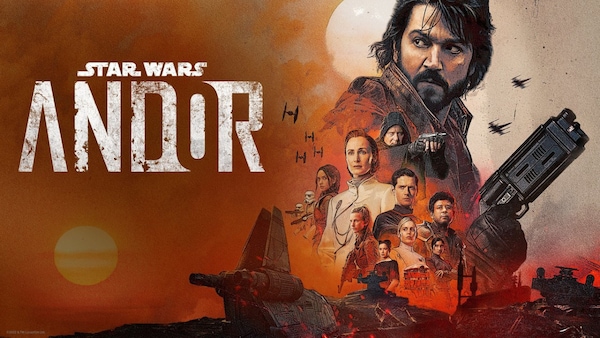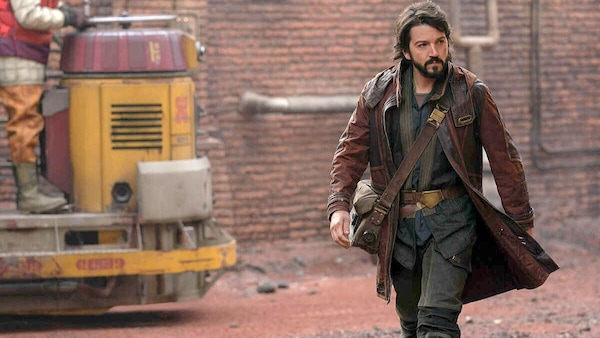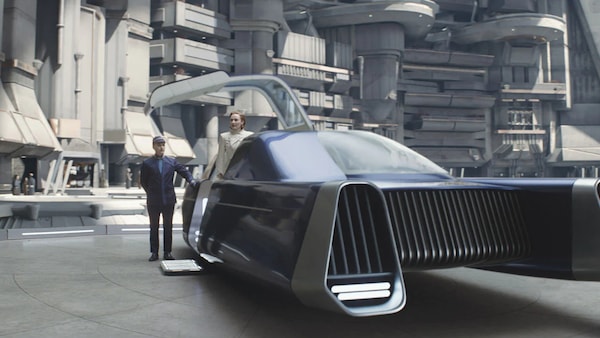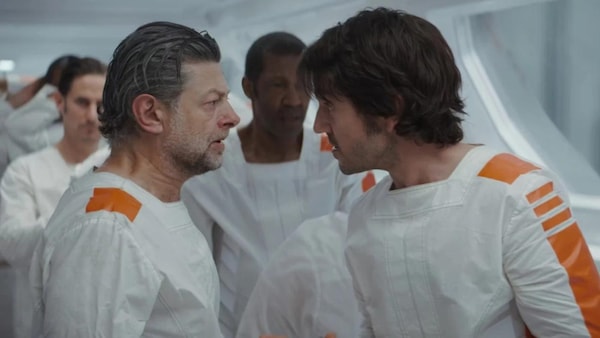Why the Star Wars series Andor is an ode to post-modern literature and anti-establishment
Andor is truly a gem hidden in a franchise that is overindulgent in nostalgia

Last Updated: 08.59 PM, Jan 06, 2023
Disney owns two of the most lucrative franchises in the world today — Star Wars and the Marvel Cinematic Universe. While the latter is a relatively new phenomenon, having found remarkable commercial success since the 2010s, Star Wars has almost been captivating audiences since time immemorial. Every decade since the first Star Wars film (later renamed Star Wars Episode IV: A New Hope) hit theatres in 1977, there have been suggestions that interest in the franchise will eventually fade away. But the sheer popularity of the franchise and the constant cycle of new releases over the decades has always managed to keep the franchise alive. Even though the essence of creator George Lucas’s original plans for the franchise have deviated considerably over the years, Disney has managed to recreate some of its magic with new films and spin-off TV shows spread across various timelines of Star Wars. However, despite being an allegory for anti-imperialism when it first debuted, the new Disney version of Star Wars has refrained from being too political, until Andor.
In many ways, Andor is the Game of Thrones version of Star Wars — littered with morally ambiguous characters and an emphasis on human conflict. Unlike the recent Disney+ Original Star Wars shows such as The Mandalorian, The Book of Boba Fett, and Obi-Wan Kenobi, it does not rely on callbacks to earlier films through Easter eggs and guest appearances. Andor relies heavily on a fresh story based on a character from one of the best and possibly the most underrated Star Wars films ever released — Rogue One: A Star Wars Story (2016). Andor’s showrunner Tony Gilroy would have certainly been mindful of the risks of not having a legacy character appear on the show, but it is a gamble that appears to have paid off. Andor is a compelling political drama that explores the ideas of totalitarianism, oppression, and the cost of freedom in a manner that was often seen in stories that became popular after World War II, more specifically in the post-modern era. It’s hard to ignore the thematic similarities to post-modern dystopian novels such as George Orwell’s 1984, Aldous Huxley’s Brave New World, and Ray Bradbury’s Fahrenheit 451.

None of the aforementioned novels, despite being revered, have been successfully adapted into film or television that have entered mainstream pop culture. And most modern commercially successful films and TV shows have shied away from being too political in order to make the content appeal to a wider demographic. This makes the story of Andor all the more surprising and why it should be cherished. The crux of the story is about oppression and rebellion, and it is a commentary on the rise of far-right sentiment across the globe over the past decade. But it is not a black-and-white tale of good versus evil, the grey in between is the highlight of the series. Some characters are part of the oppressors who believe in truth and justice, albeit in their own warped sense of morality. And then there are rebels, who are supposed to be the protagonists, who are capable of depravities even the supposed villains are incapable of.

Nemik essayed by Alex Lawther and Syril Karn played by Kyle Soller are two characters on opposite ends of the political spectrum. Nemik is a true believer of the rebellion who yearns for free will and is deeply philosophical, whereas Karn is rigid and believes in the establishment and the order it represents. One might argue that both characters are highly intelligent individuals — both true believers but for contrasting causes. But if one were to compare Karn to other members of the rebellion such as Skeem (Ebon Moss-Bachrach), there are a few interesting character traits that come to the fore. Skeem is part of the rebellion but for his own vested interests, he is willing to betray anyone and even the cause if it benefits him in some manner. Karn on the other hand is on a crusade for what he believes is justice. He also has compassion for those around him. Karn symbolises the privileged elite in present-day democracies who have put their utmost trust in the establishment and have also completely dehumanised those who are considered their enemy. Andor explores the idea that sometimes the right people can become part of the wrong cause and the wrong people could be the defenders of the right cause. It is a notion that is often dismissed or unheard of in the era of social media.

The visual representation of the Empire is eerily pristine, from offices to its streets and even its prisons – it represents order. In fact, the prison in the third arc of the story seemingly has better living standards than most people across the globe. But this creative choice is by design to evoke the idea that true oppression is the complete deprivation of one’s agency. The prison, despite its almost flawless aesthetic and unusually high standard of hygienic conditions, is possibly the worst place to be in the Star Wars universe. It has the power to break one’s mind before it breaks one’s body. Even though the protagonist Cassian Andor (Diego Luna) has witnessed atrocities by the Empire from a very young age, he is not compelled to join the rebellion. Some of these atrocities include cultural genocide, colonialism, imperialism, and even actual genocide which are rampant across the Galaxy. And the series has incorporated these themes in all three of its arcs for season one — from the planets Ferrix to Coruscant and to Narkina 5. But it is the time Cassian spent in prison at Narkina 5 and Nemik’s manifesto that finally convinces him to join the rebellion in the season finale.

What makes Andor truly stand out is not the fact it has delivered a powerful political message, but the fact that it has a riveting story to convey a powerful political message. Andor has put Disney in uncharted territory, and unless there is studio interference for the second season, Tony Gilroy could produce yet another masterpiece. It is interesting to note that three of the best stories in the Star Wars franchise are set in a timeline which is after the prequel trilogy and before the original trilogy — the film Rogue One: A Star Wars Story (2016), the video game Star Wars Jedi: Fallen Order (2019), and Andor (2022). And with Star Wars: Jedi Survivor coming to next-gen consoles this year, it could be an exciting couple of years ahead for Star Wars fans.

